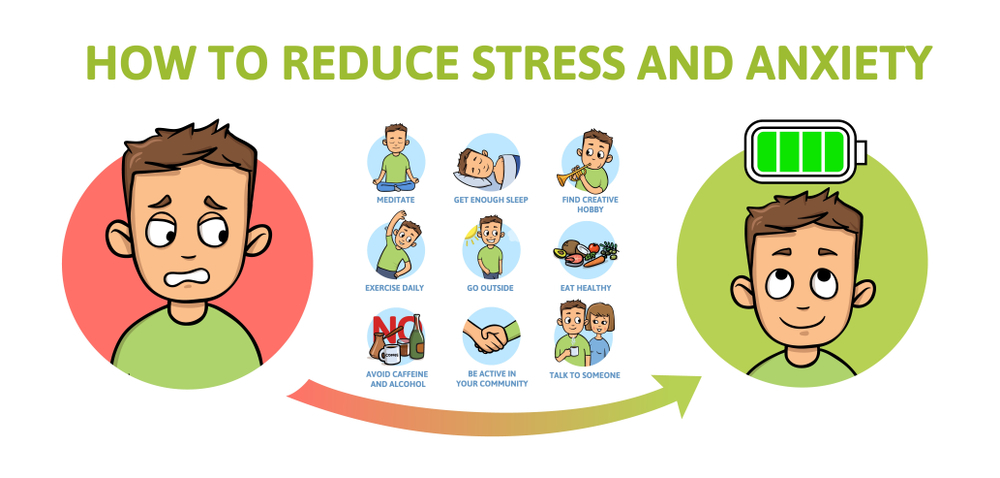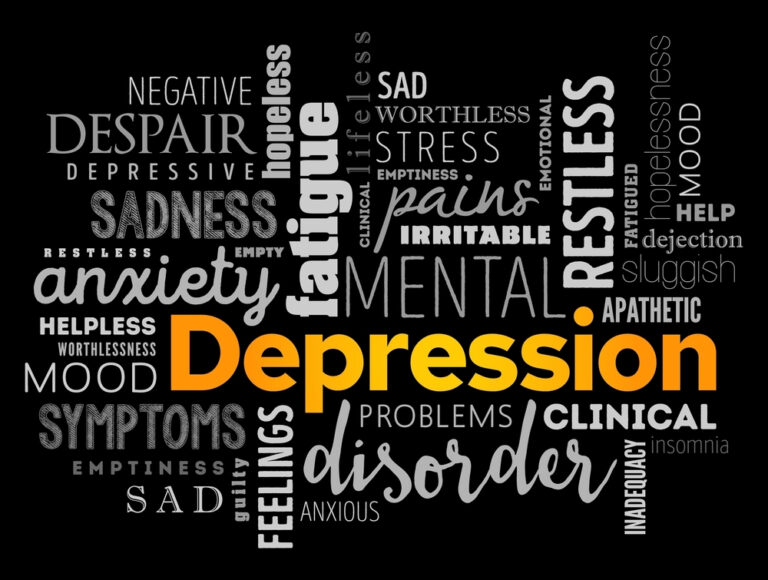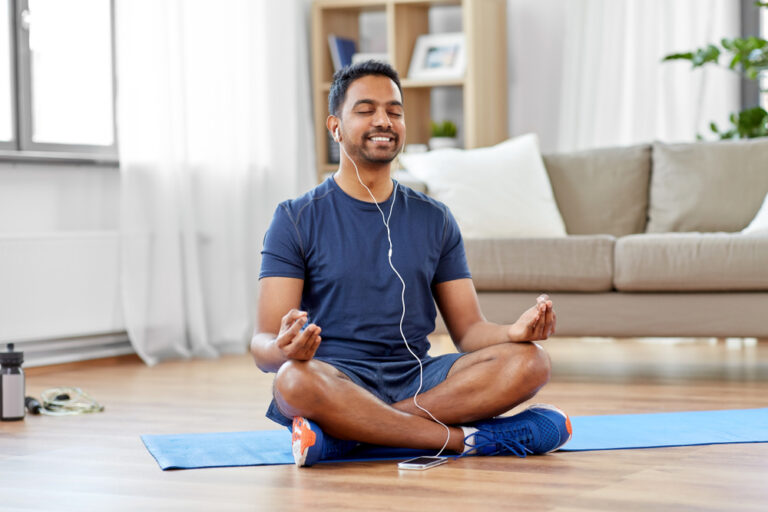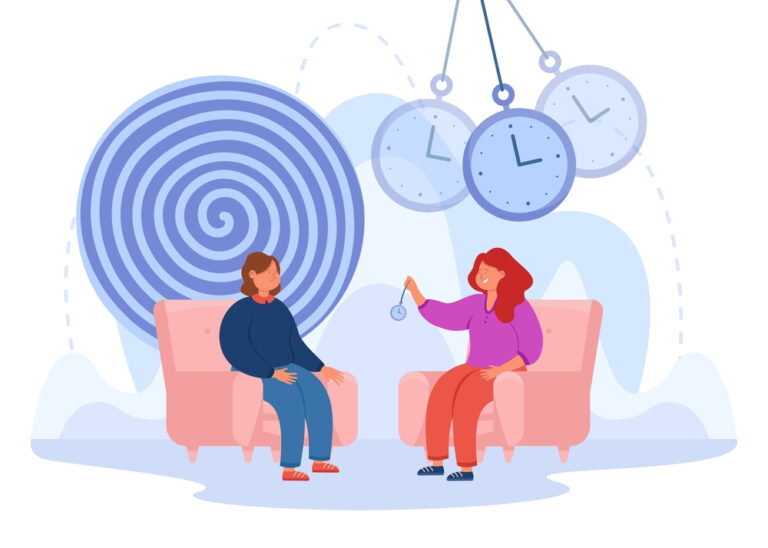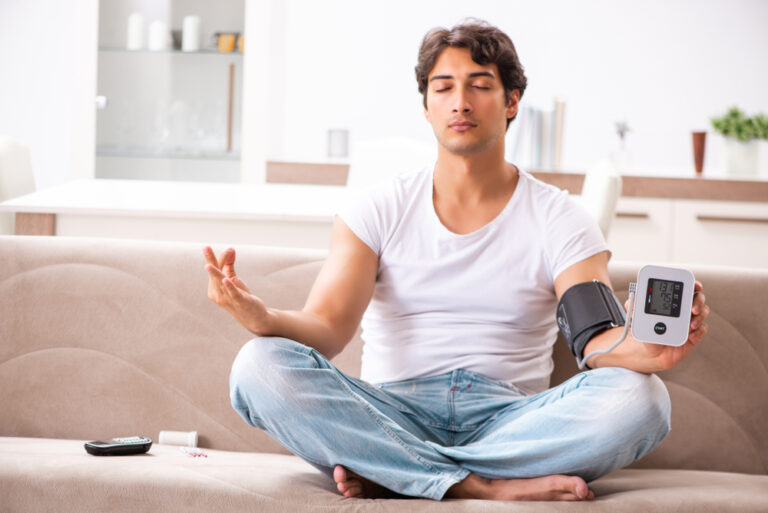How Meditation Can Sometimes Trigger Anxiety: Unveiling the Dark Side
How Meditation Can Sometimes Trigger Anxiety: Meditation has been practiced for thousands of years and has been proven to have numerous mental and physical health benefits. It is an effective tool for relaxation, stress reduction, and improving overall well-being.
However, there is a growing body of evidence suggesting that meditation can sometimes trigger anxiety in specific individuals. This paradox can be disheartening for those who meditate to find peace and solace. In this article, we will explore the link between meditation and anxiety, why it can sometimes trigger anxiety, and how to cope with it.
The Benefits of Meditation
Meditation has been shown to have numerous mental and physical health benefits. It can reduce stress, anxiety, and depression, improve sleep quality, lower blood pressure, and boost the immune system.
Meditation has also improved focus, creativity, and cognitive function. It is a powerful tool for improving overall well-being and living a happier, healthier life.

Understanding Anxiety and Its Triggers
Anxiety is an inherent reaction to stress and perceived danger, giving rise to sensations of unease, encompassing emotions such as concern and fear, which can vary in intensity. Anxiety becomes a problem when it is chronic, excessive, and interferes with daily functioning. Anxiety disorders are the most common mental health disorders in the United States, affecting over 40 million adults yearly.
Various factors, including stress, trauma, genetics, and environmental factors can trigger anxiety. It is essential to understand the triggers of anxiety to manage it effectively. Some common anxiety triggers include social situations, work or school, health issues, and financial problems.
The Link Between Meditation and Anxiety
Meditation is often touted as a tool for relaxation and stress reduction. However, for some people, the stillness and silence of meditation can amplify their anxious thoughts and feelings. This can be a disheartening realization for those who meditate to find peace and solace.
The link between meditation and anxiety is complex and not fully understood. One possible explanation is that meditation brings our attention to the very thoughts and emotions we are trying to escape from. By sitting in silence and focusing on the present moment, we become aware of the internal chatter and unease that usually goes unnoticed. This heightened awareness can be intimidating and overwhelming, leading to increased anxiety.
How Meditation Can Sometimes Trigger Anxiety
Meditation can sometimes trigger anxiety in specific individuals.
Increased self-awareness
Meditation can bring our attention to the internal chatter and unease that usually goes unnoticed. This increased self-awareness can be overwhelming for some individuals, leading to anxiety.
Repressed emotions
Meditation can bring up repressed emotions and memories that we have been avoiding. This can be difficult to deal with and can lead to anxiety.
Physical discomfort
Sitting in a meditation posture for an extended time can be uncomfortable and painful. This physical discomfort can be a source of anxiety for some individuals.
Signs That Meditation Is Triggering Anxiety
It is essential to be aware of the signs that meditation is triggering anxiety. Some common signs include:
- Increased heart rate and breathing
- Sweating
- Trembling or shaking
- Feeling lightheaded or dizzy
- Experiencing a deep feeling of impending threat.
- Racing thoughts or difficulty concentrating
- Feeling restless or agitated
If you experience any of these symptoms during meditation, it is essential to take a break and seek support from a qualified meditation teacher or mental health professional.
Coping Strategies for Managing Anxiety During Meditation
If you are experiencing anxiety during meditation, several coping strategies can help you manage it effectively. Some common strategies include:
Practice self-compassion
Be kind and compassionate to yourself. Recognize that anxiety is a natural stress response and that it is okay to feel anxious.
Focus on your breath
Focus on it and use it as an anchor to the present moment. This can help you calm your mind and reduce anxiety.
Use guided meditations
Guided meditations can be helpful for individuals who are experiencing anxiety during meditation. They provide structure and guidance, which can help calm the mind and reduce anxiety.
Take breaks
If you are feeling overwhelmed or anxious during meditation, take a break and come back to it later. It is essential to listen to your body and give yourself time to rest and recharge.
Alternative Practices for Anxiety Relief
If meditation is triggering anxiety for you, several alternative practices can help you manage your anxiety effectively. Some standard practices include:
Mindfulness Meditation
Mindfulness meditation involves staying fully present in the moment and observing your thoughts without judgment. It’s a practice that can help reduce anxiety by increasing self-awareness and promoting relaxation. To practice mindfulness meditation, find a quiet space, sit comfortably, and focus on your breath or a specific focus point. If your thoughts drift, softly guide your focus back to the here and now. The benefits of mindfulness meditation are profound, including the reduction of stress, improved emotional regulation, and enhanced overall well-being.
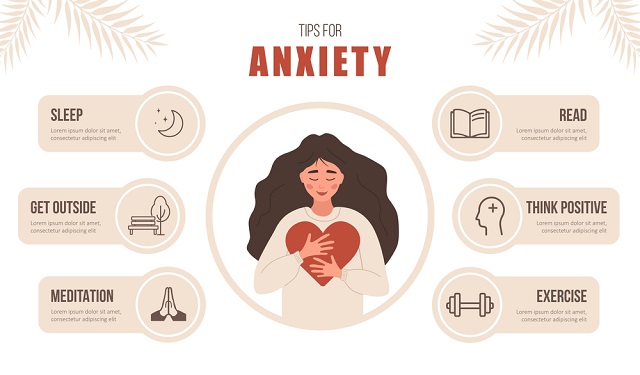
Guided Meditation
Guided meditation is when you listen to a trained instructor or use recorded audio to lead you through a meditation session. It’s an excellent choice for beginners or those seeking specific anxiety-related meditations. To practice guided meditation, find a quiet space, play a guided meditation recording, and follow the instructions provided by the guide. The benefits of guided meditation are numerous, as it can help reduce anxiety, improve focus, and create a sense of calm by following a structured meditation process.
Body Scan Meditation
Body scan meditation focuses on each part of your body, from head to toe, progressively relaxing and releasing tension. To practice body scan meditation, lie down or sit comfortably, start at your head, and slowly move your attention down to your toes, relaxing each body part as you go. The benefits of body scan meditation include the identification and release of physical tension, a reduction in anxiety, and the promotion of physical relaxation.
Yoga for Anxiety
Yoga combines physical postures, breathing exercises, and meditation to promote relaxation and reduce anxiety. It’s a holistic practice for both the body and mind. To practice yoga for anxiety relief, attend a yoga class, follow online tutorials, or create your yoga routine with poses that focus on stress reduction. The benefits of yoga encompass enhanced flexibility, reduced muscle tension, improved breathing, and a sense of calm, making it an effective practice for anxiety relief.
Visualization Meditation
Visualization meditation involves mentally picturing peaceful scenes or situations to promote relaxation and reduce anxiety. To practice visualization meditation, find a quiet space, close your eyes, and visualize a serene place, like a beach or a forest, engaging all your senses to make the experience more vivid. The benefits of visualization meditation are anxiety reduction, increased positive emotions, and improved mental clarity and focus.
Loving-Kindness Meditation (Metta)
Loving-kindness meditation is a practice focused on developing feelings of love and compassion both for yourself and others. It can promote emotional well-being and reduce anxiety. To practice Metta meditation, sit comfortably and repeat positive phrases or affirmations directed toward yourself, loved ones, acquaintances, and even people you may have conflicts with. The benefits of Metta meditation encompass increased self-compassion, empathy, and a reduction in negative emotions, making it a valuable tool for managing anxiety.
These meditation practices offer a diverse toolkit for individuals seeking effective methods to alleviate anxiety and promote emotional well-being. Whether you choose mindfulness, guided meditation, body scan, yoga, visualization, or loving-kindness meditation, each technique has unique benefits that can help you achieve a greater sense of calm and mental clarity while reducing anxiety.
Yoga
Yoga combines physical postures with breathwork and meditation, making it an excellent alternative for individuals who are experiencing anxiety during meditation.
Tai Chi
Tai Chi is a gentle exercise that combines movement, breathwork, and meditation. It is an excellent alternative for individuals who find sitting meditation challenging.
Mindfulness
Mindfulness is a form of meditation that focuses on the present moment without judgment. It can be practiced in various ways, including mindful breathing, walking, and eating.
Finding the Right Balance Between Meditation and Anxiety Management
“Finding the Right Balance Between Meditation and Anxiety Management” is a critical aspect of harnessing the benefits of meditation for anxiety relief. While meditation is a powerful tool for managing anxiety, it’s essential to strike the right balance to maximize its effectiveness. On one hand, meditation offers a path to inner calm, self-awareness, and stress reduction. On the other hand, excessive or rigid meditation practices can sometimes induce stress or frustration, especially for beginners.
The key lies in finding a balance that suits your needs and preferences. Experiment with different meditation techniques, durations, and frequencies to identify what resonates best with you. Some may find daily short sessions most beneficial, while others may prefer longer, less frequent practices. Moreover, it’s crucial to integrate meditation into a broader anxiety management strategy that may include other practices, lifestyle adjustments, or professional guidance.
Ultimately, the right balance between meditation and anxiety management is a highly individualized journey, and by exploring various approaches, you can discover what works most effectively for your unique needs and circumstances.
Seeking Professional Help for Meditation-Induced Anxiety
Suppose you are experiencing anxiety during meditation and find it challenging to manage independently. In that case, it is essential to seek support from a qualified meditation teacher or mental health professional. They can help you understand the underlying causes of your anxiety and develop a personalized plan for managing it effectively.
Conclusion
In conclusion, meditation is a powerful tool for relaxation, stress reduction, and improving overall well-being. However, it can sometimes trigger anxiety in specific individuals. It is essential to approach meditation with self-awareness and personalization and to seek support from a qualified meditation teacher or mental health professional if you are experiencing anxiety during meditation.
Remember that many alternative practices can help you manage your anxiety effectively and that finding the right balance between meditation and anxiety management is key to a successful meditation practice.

